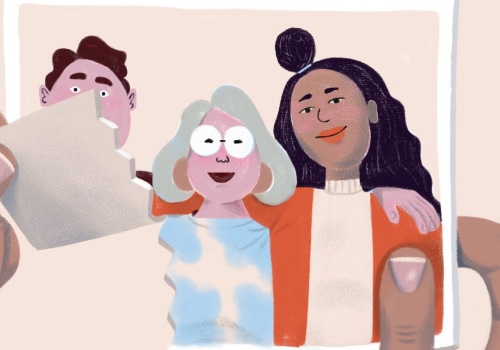A collaborative divorce is a legal divorce process that allows couples to negotiate all the terms of a divorce, without the need to throw mud or fight. Collaborative divorce is a relatively new method of solving the problems that people face when ending a marriage. Think of a collaborative divorce as a combination of divorce mediation and a traditional divorce involving lawyers. Both spouses hire lawyers who agree to resolve problems using non-contradictory techniques.
The goal is to negotiate a win-win solution that better meets the needs of both parties and avoids litigation. Collaborative lawyers are committed to managing conflicts, not creating conflicts. Collaborative divorces imply that both parties, each represented by a lawyer, enter into what is called a Partnership Agreement. This is a legally binding contract that obliges each party to the divorce to participate in the collaboration process.
This contract also limits the scope of representation of each lawyer. For example, lawyers must withdraw from the case if the collaborative process is unsuccessful. Finally, collaborative divorce requires that both participating parties have at least some mutual trust to hold negotiations in good faith. Once you and your spouse have negotiated the terms of your divorce, your attorneys will draft a settlement agreement for both parties to sign.
Whether a collaborative divorce is right for you depends on each spouse's opinion of the process, willingness to negotiate, and ability to work together. The collaborative divorce process begins first with a conversation between divorcing spouses to ensure that both of them are willing to negotiate and work together in the collaborative process. It is a dispute resolution process whereby couples choose to divorce outside of the traditional court-based model of contentious litigation. VacP members are collaborative professionals, dedicated to resolving family and civil matters without litigation.
A participation agreement disqualifies collaborative divorce attorneys from representing either spouse if they cannot agree on the terms of the divorce and end up litigating. There are a number of benefits to being able to avoid using the court process to resolve your divorce issues. This is true for divorcing couples who cannot agree on what to do and require the intervention of lawyers and judges to resolve their disputes. Once both parties agree on all issues, the legal part of the divorce is relatively painless.
Licensed mediators, divorce counselors, and children's specialists will likely increase the overall cost from start to finish. To help with this, we've added some frequently asked questions below so people can have before seeking a collaborative divorce in Greenville, NC. Courts in every state encourage couples to work together to resolve divorce disputes, and when you can agree, you will notice that the process is much more comfortable. Divorce mediation is an alternative dispute resolution process in which a third-party mediator guides a separating couple to resolve issues related to property distribution, child custody, alimony, and other divorce issues.
You and your attorney should also begin building your collaborative divorce team, including a divorce counselor, a financial specialist, and a children's specialist.








